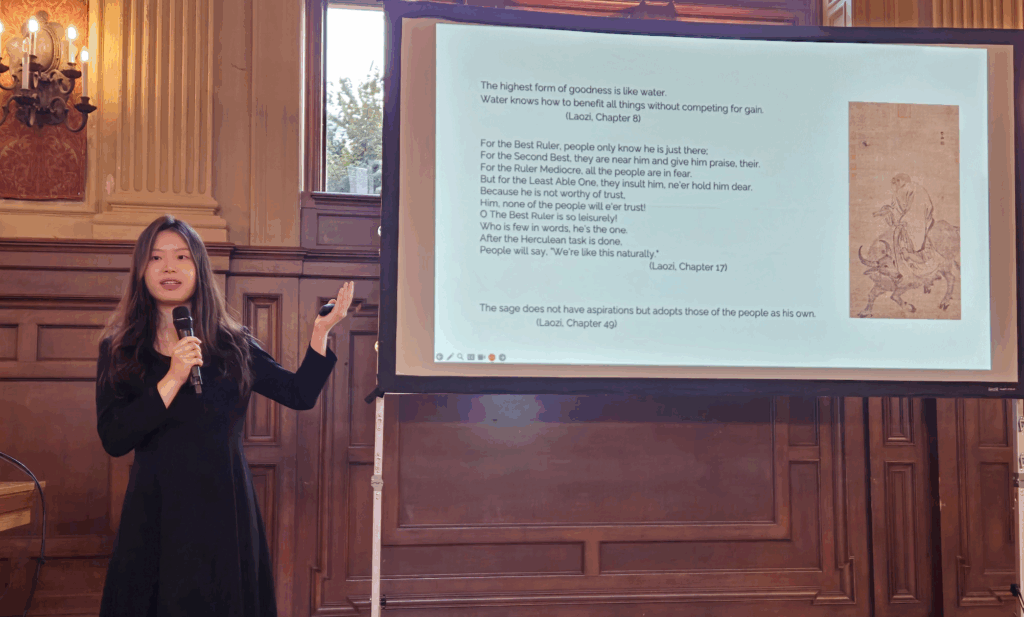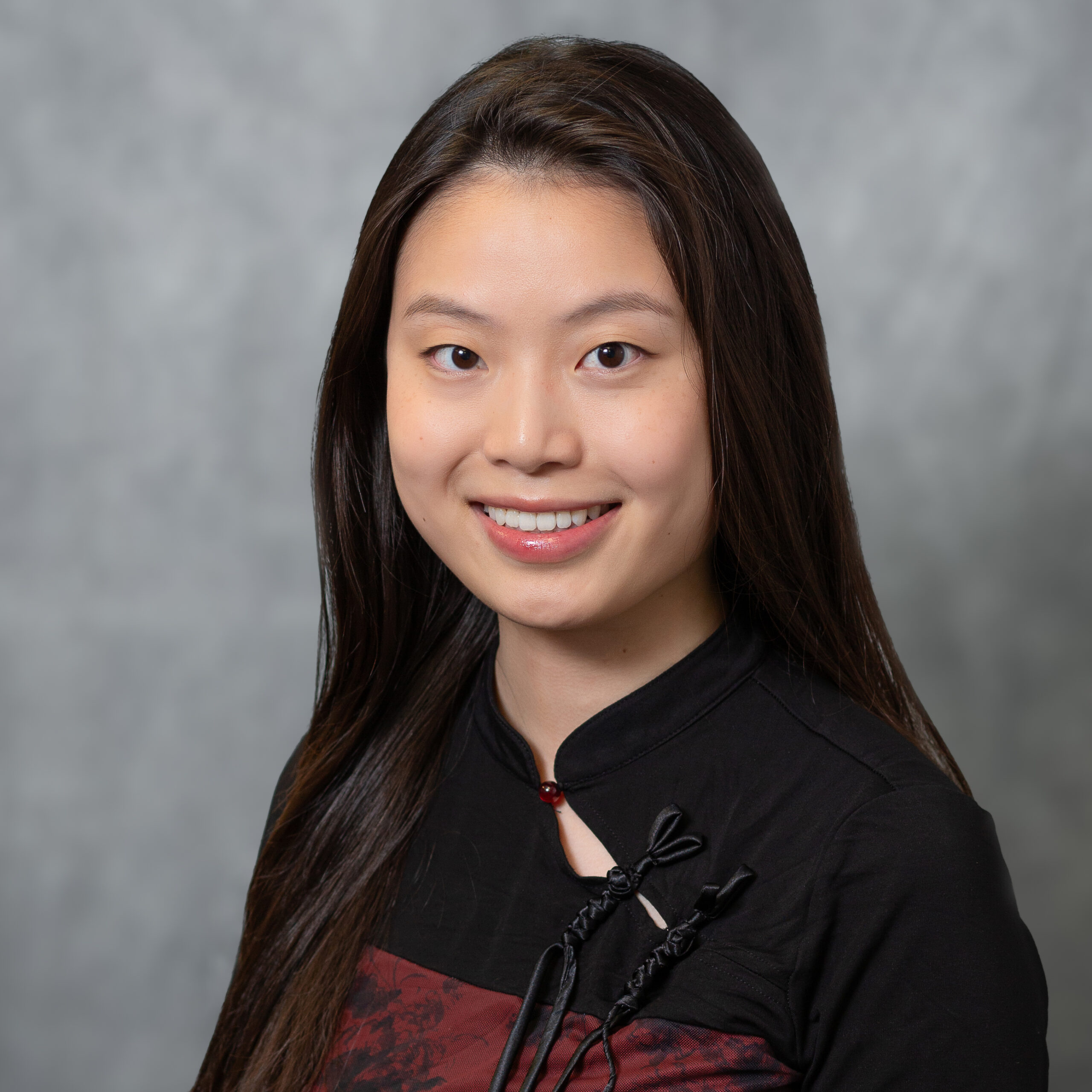Shen Wang is a JD student at Washington University School of Law. Born and raised in Shanghai, China, Shen graduated from Fudan University in 2023 with a Bachelor of Arts in English Literature and a minor in Chinese literature. Shen has interned at leading Chinese law firms, engaging in various pro bono activities.
From 2016 to 2020, Shen volunteered as an online tutor for students in rural China. Shen also organized an English summer camp in Hubei in 2020 and served as a head teacher in Sichuan in the summer of 2021, teaching over 1,500 students in total. Additionally, Shen has led translation projects, bringing Chinese works to an international audience.
Shen loves country music and enjoys hiking, exploring caves, riding roller coasters, and swimming. Shen is also a professional lifeguard.
Scholar Voices
Global Leadership Vision Op-Ed | Clearing the Channel: A Daoist Model of Leadership
By Shen Wang | October 2025

In Dechang, Sichuan, I stood in a classroom full of talent. Almost every student was smart enough to succeed. That was not the problem. The problem was worry: family expectations, uncertain futures, and classmates who mocked anyone who dared to study too hard. I watched as potential stalled long before any exam had the chance to measure it.
What I learned there echoes an idea from Laozi’s Dao De Jing: true power does not come from pushing harder but from clearing the channel so that the natural current can flow. Laozi wrote, “The highest form of goodness is like water. Water knows how to benefit all things without striving with them.” Water succeeds not by fighting, but by flowing around obstacles and nourishing what it touches. In the same way, real leadership means creating conditions where growth and achievement can happen naturally.
Critics might say classrooms need firmer discipline, not a lighter touch. Rules and control, they argue, are the only way to keep students focused. But research tells a different story. Psychologists Edward Deci and Richard Ryan’s Self-Determination Theory shows that students thrive when they experience autonomy and support rather than tight control. Similarly, Carol Dweck’s work on growth mindset demonstrates that reducing the fear of failure unlocks resilience and effort. In other words, when leaders clear the channel, students do the rowing themselves.
This principle extends beyond a single Sichuan classroom. Globally, millions of young people face obstacles not of intelligence but of circumstance: economic insecurity, social pressure, or policies that make learning harder instead of easier. According to a 2023 UNESCO report, nearly 250 million children worldwide are out of school, not because they cannot learn, but because of systemic barriers such as cost, gender discrimination, and lack of safe spaces. The tragedy is not a lack of talent, it is blockages in the channel.
So what does channel-clearing leadership look like in practice? It can be as small as a teacher structuring study groups so motivated students are not isolated. It can be as large as policymakers providing scholarships that remove financial fear from the equation. It can even be cultural: celebrating curiosity rather than mocking ambition. Each of these actions clears a stone from the riverbed, allowing potential to move forward.
The call to action is simple but profound: leaders in classrooms, governments, and communities must shift from commanding harder to clearing smarter. Instead of trying to force outcomes, they should ask what is blocking the natural flow, and how to remove it.
When I think back to my students in Dechang, I remember their intelligence, their humor, their potential. What they needed was not more pressure, but less friction. If we learn to clear the channel, we will find that talent is already there, ready to move with the current.
